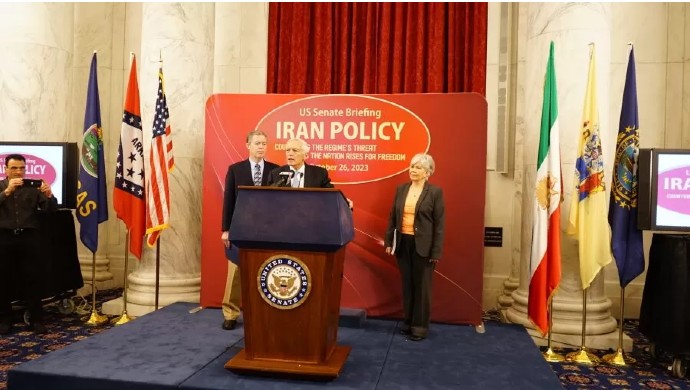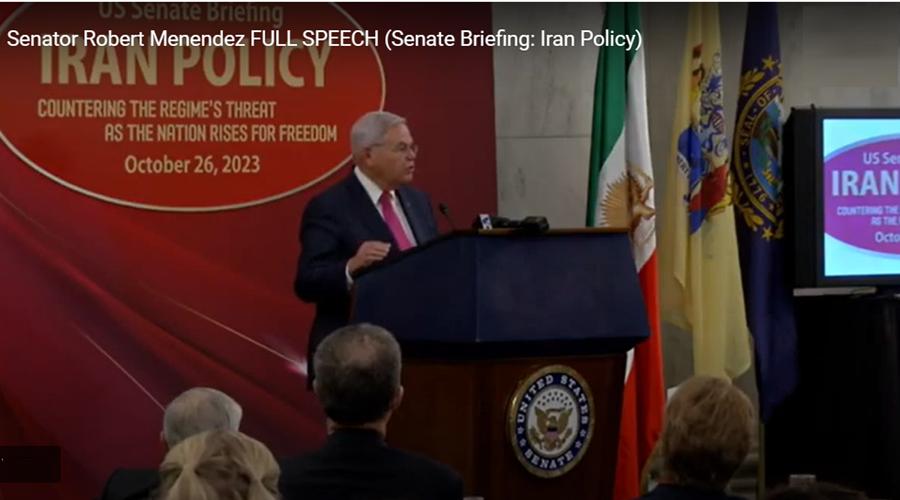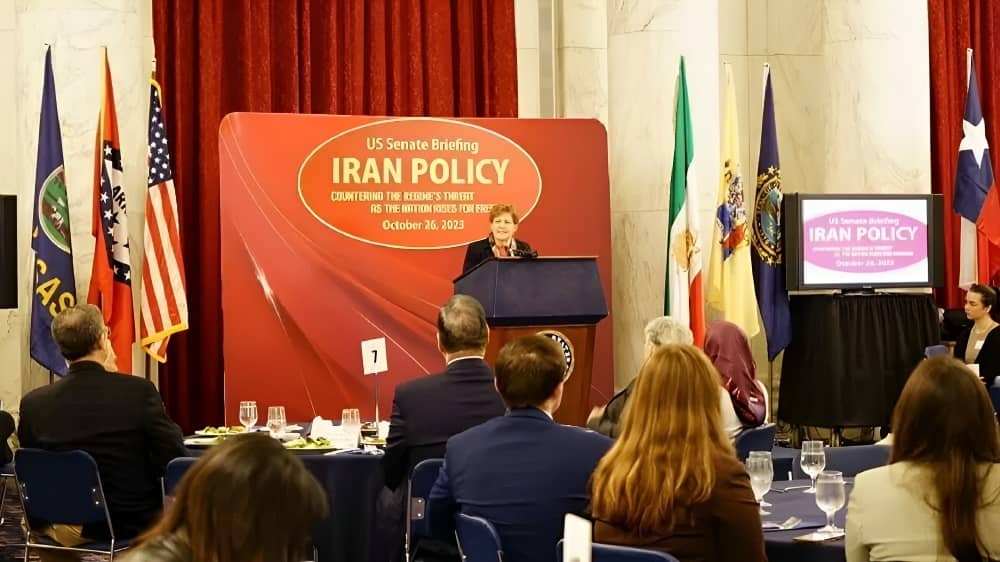
The clerical regime in Iran, accused of being a catalyst for continued wars in the Middle East and the ensuing humanitarian disasters, is using the turmoil to distract from its internal crises and silence its own people’s protests.
As the unrest in the region continues, the Iranian leadership perceives this chaos as a protective shield against potential internal revolts.To shed light on Iran’s interventions in regional affairs, the U.S. Senate held a session on October 26, titled “Iran Policy – Confronting the Threats Posed by the Regime during the People’s Uprising for Freedom.” The primary focus was the clerical regime’s role in the region’s ongoing conflicts.
Prominent voices from the session conveyed a united message: The primary instigator of instability in the Middle East is the Iranian clerical regime. Many reiterated that backing the People’s Mojahedin of Iran (PMOI/MEK) and the Iranian Resistance is the answer to the challenges posed by the Iranian dictatorship.

Senator Robert Menendez remarked, “Iran’s regime is a brutal autocracy. They are prepared to go to any extent, even if it means kidnapping, torturing, and murdering innocent civilians, to retain their hold on power.”
He further emphasized the difference between the oppressive regime in Tehran and the nation’s longing for freedom. Echoing these sentiments, Senator Jeanne Shaheen stated, “Tehran has always prioritized its own preservation, often by oppressing its citizens and fostering external conflicts. The Iranian regime’s tactics resemble those of other oppressive governments, like that of Ukraine.”
Ambassador Sam Brownback, General Wesley Clark, and Linda Chavez expressed their support for a regime change in Iran, orchestrated by its people and backed by the international community. Clark highlighted that the current Iranian leadership has a clear terror agenda that doesn’t reflect the will of its citizens.

Senator Jeanne Shaheen stated, “Tehran has always prioritized its own preservation, often by oppressing its citizens and fostering external conflicts.
Mrs. Maryam Rajavi, connecting online as the president-elect of the National Council of Resistance of Iran (NCRI), emphasized that the Iranian regime is the root cause of the region’s wars and crises. “The mullahs believe that by igniting conflicts in neighboring countries, they can prevent revolts within Iran,” Rajavi said. She concluded with a call to action, emphasizing the need for international solidarity with the Iranian people and their organized Resistance against the regime.
As the Middle East continues to grapple with its challenges, the spotlight remains on Iran’s role in the region’s ongoing unrest and the international community’s potential response.

MEK Iran (follow us on Twitter and Facebook), Maryam Rajavi’s on her site, Twitter & Facebook, NCRI (Twitter & Facebook), and People’s Mojahedin Organization of Iran – MEK IRAN – YouTu
